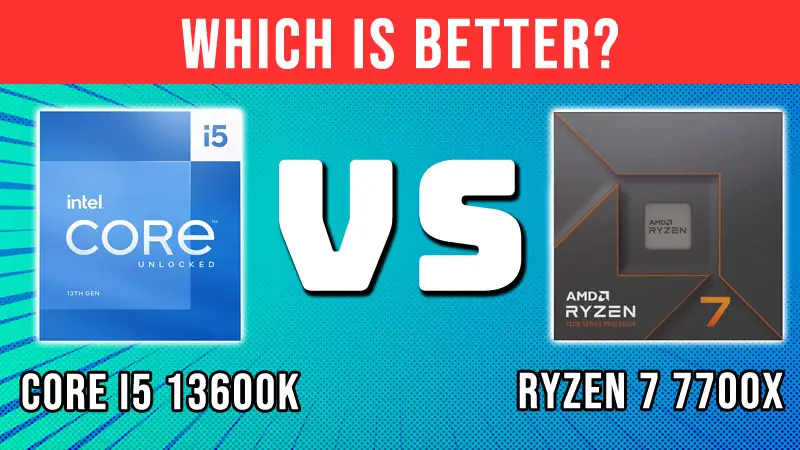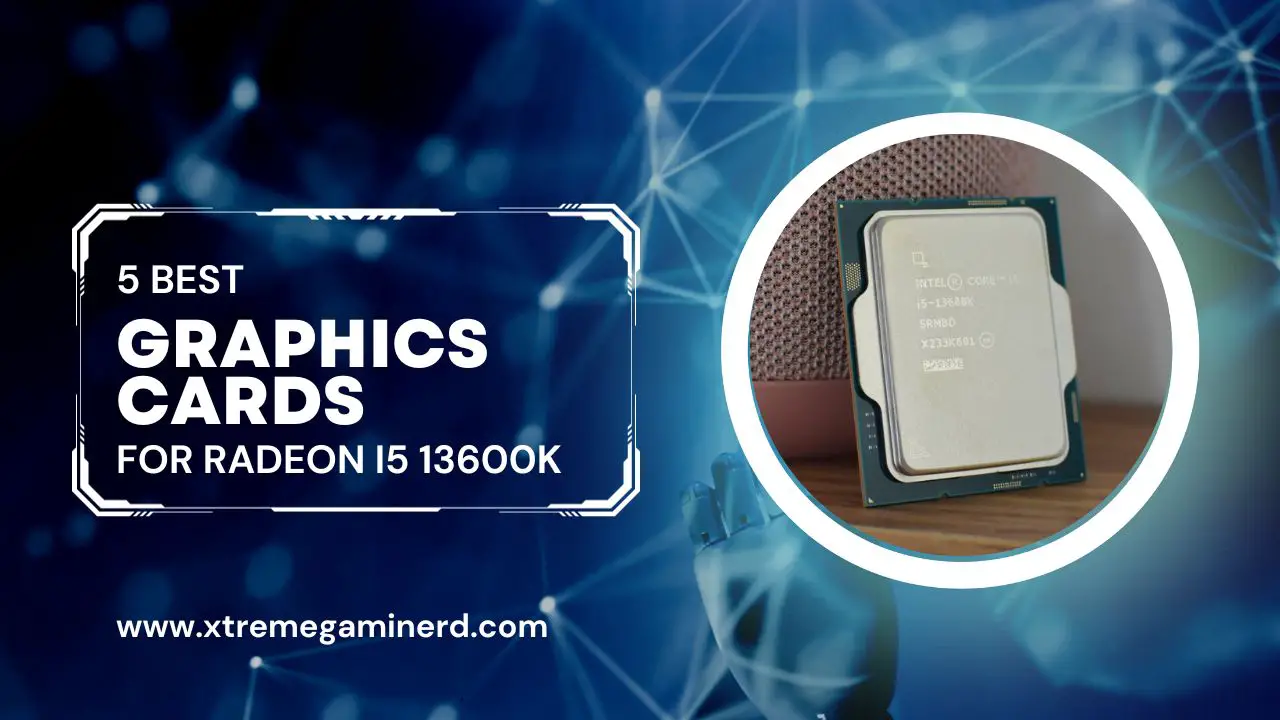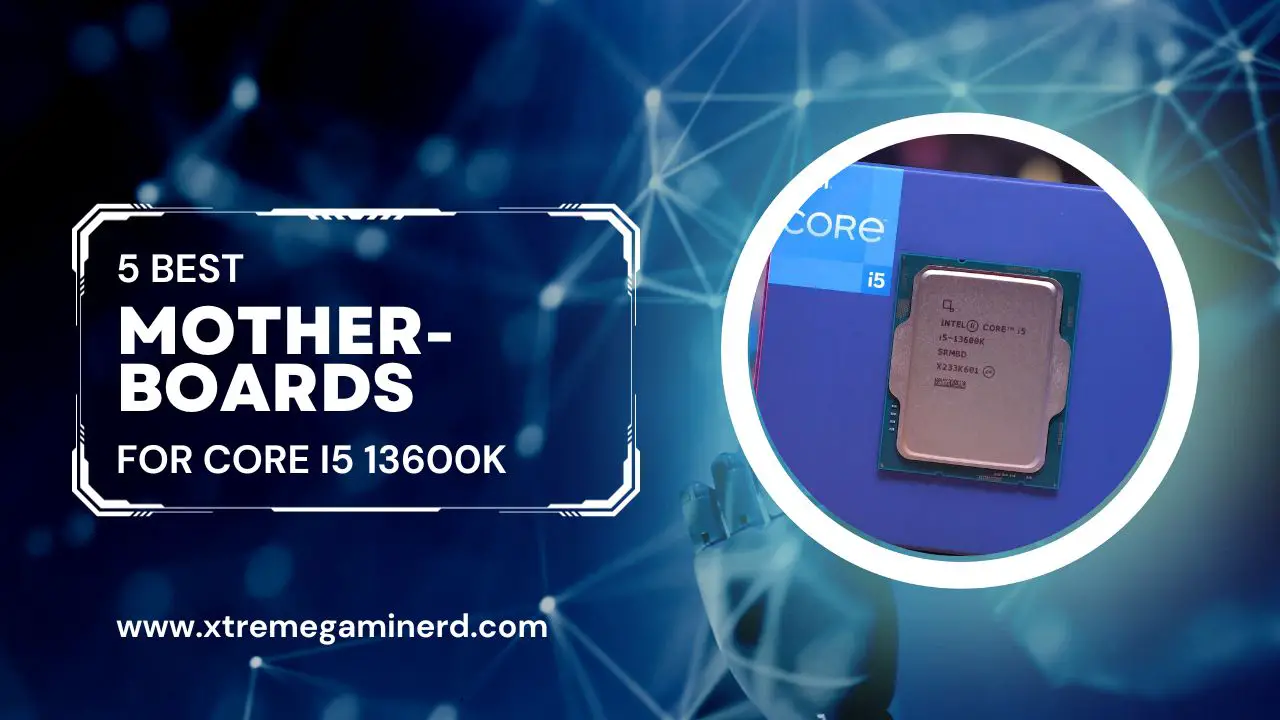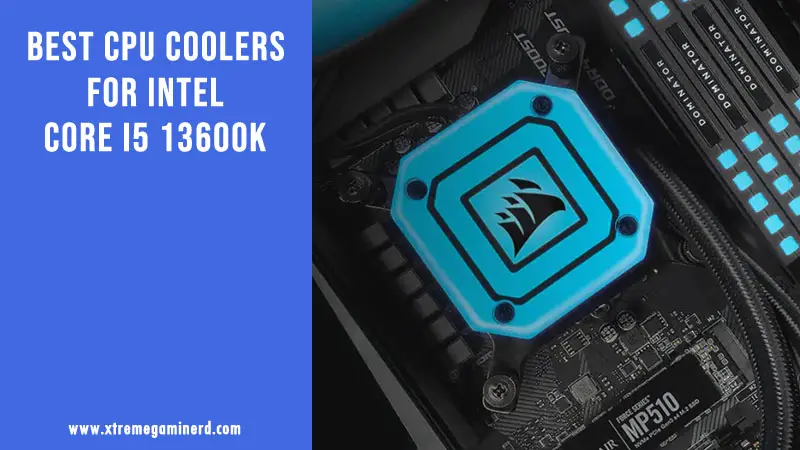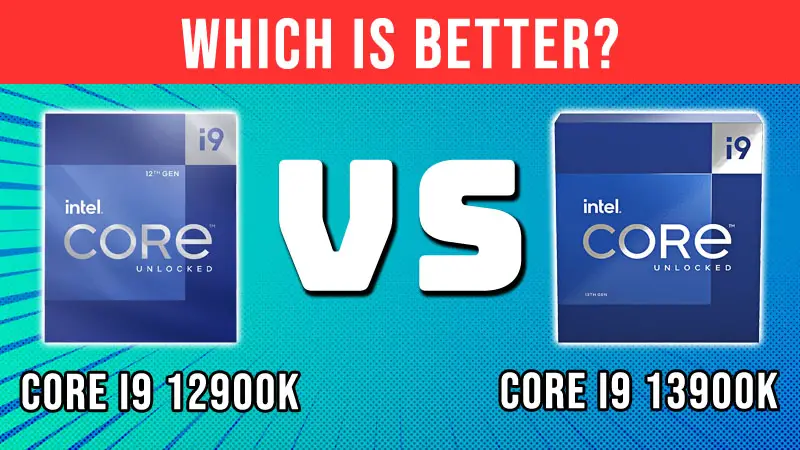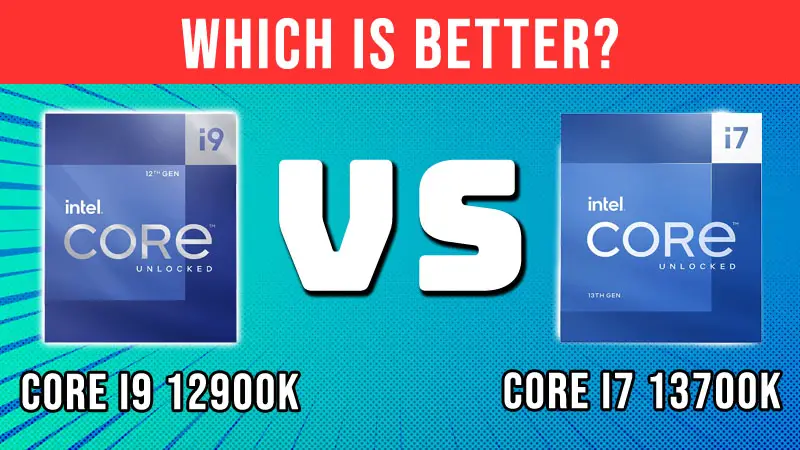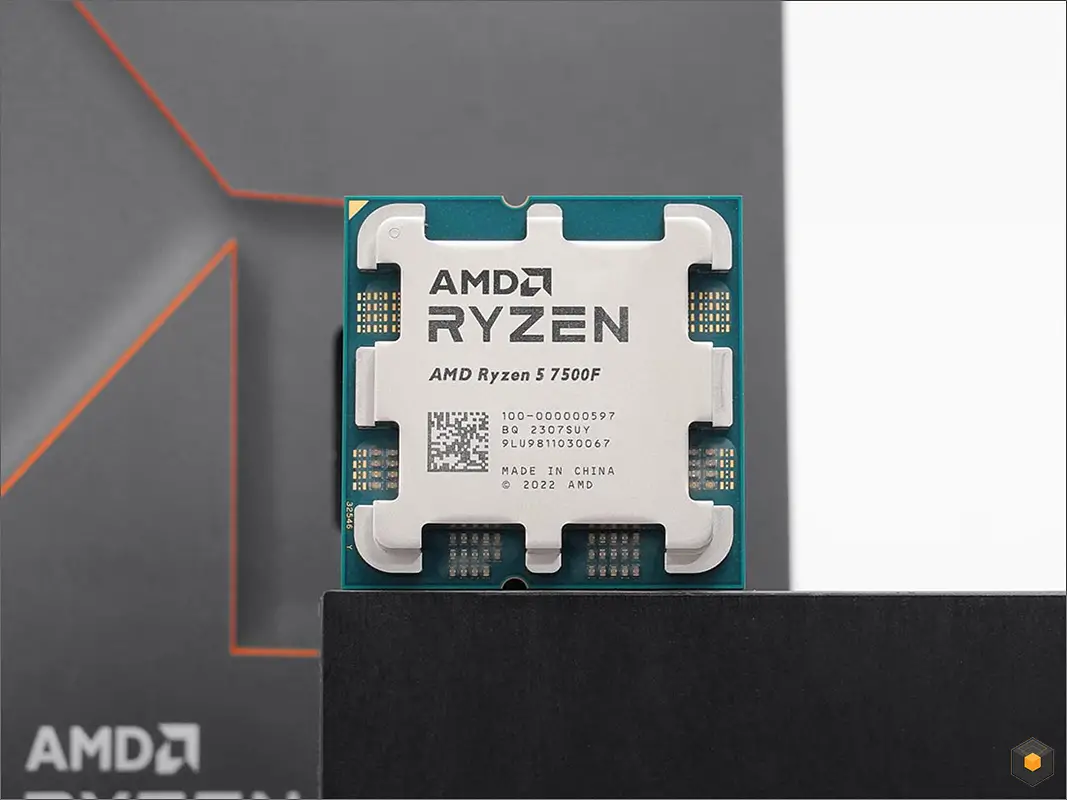The 13th gen Raptor Lake series has dethroned both the Ryzen 7000 and 12th Gen Alder Lake processors and that has confused many in choosing a processor for their builds.
As newer CPUs generally outperform the previous ones in the same tier, it is easier to choose between the two but the scenario is completely different when the lower tier CPU is almost the same performance as the higher one from the previous gen.
Here we are talking about the Core i5 13600K vs i9 12900K which although doesn’t seem to be a fair competition but in reality, this comparison is definitely important for two reasons.
Number one- the Core i5 13600K features significantly better specs than the previous gen Core i5s and number two- most users who are enthusiast gamers would want to save money if the processor doesn’t fall that much behind the pricier one.
Let’s see what differences you are going to see theoretically and also in real-world benchmarks when we compare the 13600K and 12900K. We are going to compare them in specifications, compatibilities, gaming/applications performance, thermals, power consumption, and value for the price.
Specifications Difference
SPECS | Intel Core i5 13600K | Intel Core i9 12900K |
Code Name | Raptor Lake | Alder Lake |
Lithography | Enhanced Intel 7(10nm) | Intel 7(10nm) |
Socket | LGA 1700 | LGA 1700 |
Cores/Threads | 14/20 | 16/24 |
Clock Speeds | 2.6-3.9GHz/3.5-5.1GHz | 2.4-3.9GHz/3.2-5.1GHz |
L2/L3 Cache | 20/24MB | 14/30MB |
TDP | 125W-181W | 125W-241W |
Integrated Graphics | Yes | Yes |
The Core i5 13600K doesn’t come close to the 12900K in most specs. Core i9 processors are generally on a completely different level and feature a high core/thread count.
Even though the 13600K has only two cores and 4 threads less than the 12900K, the latter has more Performance cores than the former which makes the most difference. Theoretically, this will help the 12900K in better productivity but not necessarily in gaming performance.
Cache memories are also bigger on the 12900K with 2MB more on the L2 side and 6MB more on the L3. More cache memory evidently results in better performance, particularly in gaming. However, performance will also be affected by the architecture, clock speeds, and core/thread count.
Power consumption is also higher on the 12900K with the max TDP 31% higher than the 13600K. Basically, these are the apparent specs difference between the two and puts the 12900K in a better position theoretically if we don’t consider the architecture.
No products found.
Motherboard Compatibility
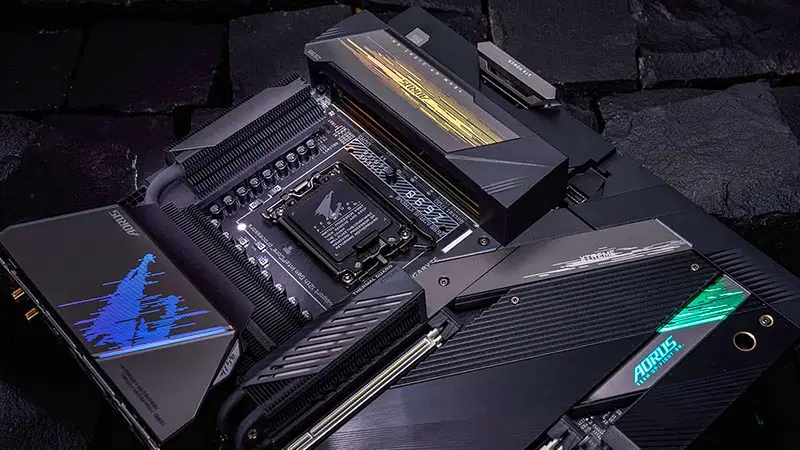
There is no difference between the motherboard compatibility whatsoever. Except that the 13600K is newer, some older motherboards may require a BIOS update.
Both the 13600K and 12900K are compatible with the LGA 1700 socket and there are a good number of chipsets that include all the 600 and 700 chipsets that can be found on an LGA 1700 motherboard.
Being overclockable CPUs, only the Z690 and Z790 chipset motherboards will allow overclocking. However, all other chipsets are also compatible with these CPUs natively.
RAM Compatibility
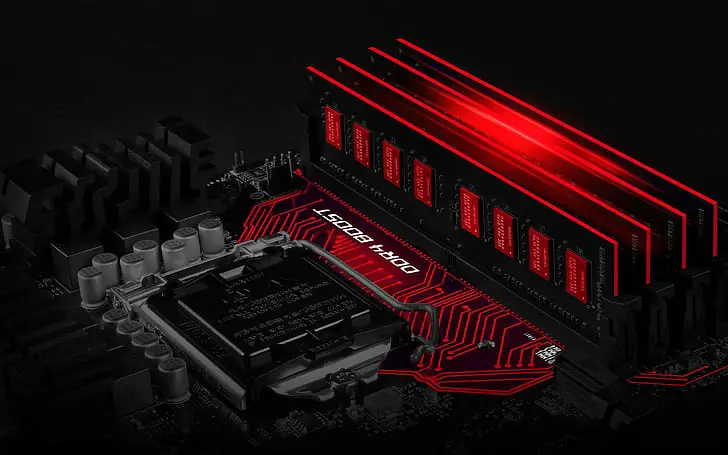
Choosing a RAM at a time when the RAM type is transitioning from DDR4 to DDR5 can be pretty difficult. Intel made sure that the users can choose between the DDR4 and DDR5 for its 12th and 13th gen processors.
Unlike the Ryzen 7000 series, both the 13600K and 12900K are compatible with both DDR4 and DDR5 memories with a small difference. The 12900K has native support of 4800MHz on DDR5 RAM but the 13600K can support up to 5600MHz natively.
Almost all the 600 and 700 chipset motherboards provide users with options to choose from DDR4 and DDR5 editions but the DDR5 is more prominent on 700 chipset motherboards.
Games And Applications Performance
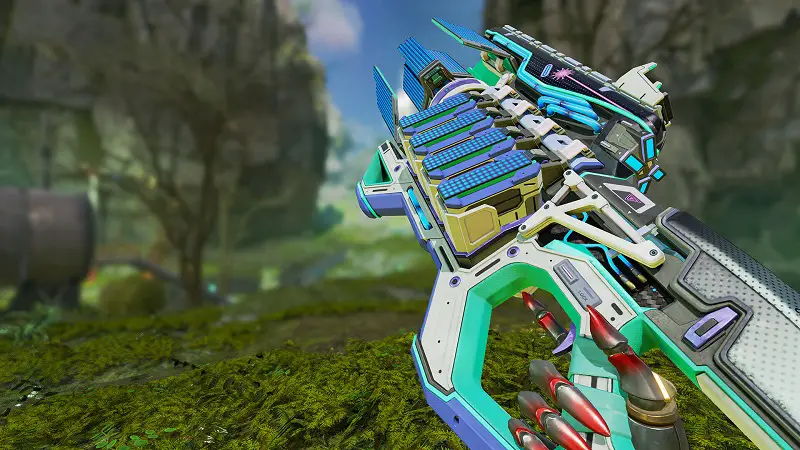
Comparing the two processors in real-world benchmarks will tell us the whole picture and where each processor stands. Most users will get the 13600K for high-end gaming performance but it will also provide great results in CPU-oriented applications. Core i9 12900K is mostly famous due to being a high-end productivity CPU. So, we have to consider all these factors in the Value For the Price section.
We are taking a few third-party sources including Gamers Nexus((https://www.youtube.com/watch?v=todoXi1Y-PI&ab_channel=GamersNexus)), Tomshardware((https://www.tomshardware.com/reviews/intel-core-i9-13900k-i5-13600k-cpu-review)), Techspot((https://www.techspot.com/review/2555-intel-core-i5-13600k/)), and Techpowerup((https://www.techpowerup.com/review/intel-core-i5-13600k/)) for getting an overall picture. This will help us decide how much difference is there between the two more accurately as the testing methods of all these sources are different but overlap in certain areas.
As far as gaming is concerned, there is little to no difference between the two. Core i5 13600K is generally 1-2% faster according to most of them but Toms has a bigger gap of 6% . So, basically, the gaming performance is a tie.
No products found.
Productivity performance isn’t as easy as collecting and taking out the average of all the numbers. We have to compare the processors in different applications and see what effect a better architecture or more cores do in these apps.
Tests show that the i9 12900K is superior overall when we consider the multi-threaded operations and the results remain mostly equivalent in single-threaded tests. The Core i5 13600K remains equal in rendering in single-threaded and around 17% slower in the multi-threaded test of Cinebench R23.
The 13600K is around 16% slower in Blender, 4-5% slower in compression, 9-11% slower in decompression, and 9-14% slower in video encoding . In Adobe Premiere Pro, the results are different. GN shows that the 13600K is slower by 10% but Toms, Techspot, and Techpowerup have opposite results although the performance gap is really far away from each other to calculate the average. Photoshop results don’t favor any processor and this concludes the overall productivity results.
Thermals And Power Consumption
Measuring the temperature of a processor might not be a difficult task but comparing two processors in thermals is more difficult. It becomes even more difficult if you consider the thermals from different sources as no two configurations are the same and the testing methodology of every reviewer is different.
Still, we can analyze the numbers provided by these sources and Techpowerup has the most reliable comparison. The i5 13600K runs cooler than the 12900K which can reach up to 99C compared to 91C on the 13600K under full load. However, while playing games, the temperature on both CPUs doesn’t cross 75C with the same configuration except if they are overclocked.
Power consumption is a whole different story where each source provides totally different results. According to GN, the 12900K can consume as high as 51% more power than the 13600K which is even higher than the max TDP stated by Intel. Other sources say that the power difference can be somewhere from 16-37% on full load . So, in conclusion, the 12900K is more power hungrier.
Value For The Price
The Core i9 12900K was launched at an MSRP of $600 whereas the i5 13600K costs half at $320. So, we are seeing a 200% price jump for literally no increase in performance on the 12900K which makes the 13600K a significantly better choice for gaming.
Even if we consider the productivity benchmarks, the value for the price of 12900K doesn’t come close to the 13600K again making the 13600K a better option. If we go by the current pricing trend, the 12900K is currently available for $100 less but that still doesn’t make it a better choice at all.
Considering that the 13600K consumes less power, is compatible with the same number of motherboards, supports better DDR5 RAM, and gives equivalent gaming performance, the 13600K is a better choice by far.
Final Words
If you are building a PC for the best gaming experience, look no further to the i5 13600K which is an even better choice than the i5 12600K and the Ryzen 7600X. If you are a professional content creator and want more cores, I still don’t recommend the 12900K as the 13900K is a much better choice for the same MSRP.
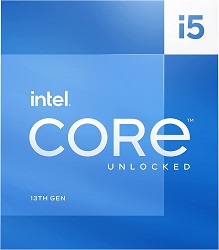
Reasons To Buy Core i5 13600K
[wp-svg-icons icon=”thumbs-up” wrap=”i” color=green] Significantly higher value for money
[wp-svg-icons icon=”thumbs-up” wrap=”i” color=green] Better DDR5 compatibility
[wp-svg-icons icon=”thumbs-up” wrap=”i” color=green] Lower power consumption
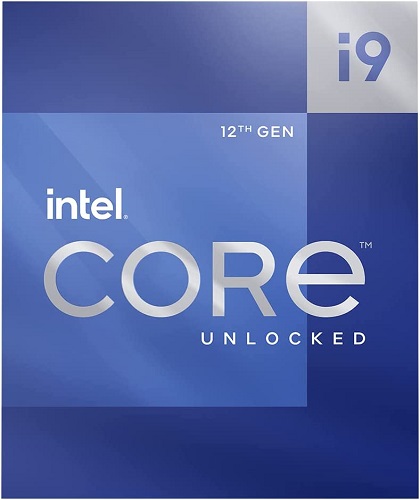
Reasons To Buy Core i9 12900K
Related:
